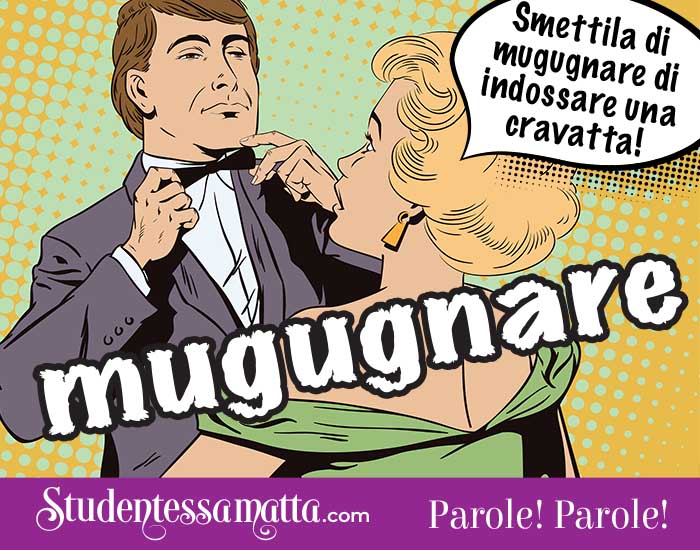
Navigare tra le Sfumature dell’Italiano: Dal Ritrovare la Strada al Sentirsi Persi
Navigating the Nuances of Italian: From Finding Your Way to Feeling Lost
Capire “Bussola” e “Scombussolato”
Understanding the Italian words Bussola and Scombussolato
Nell’immenso oceano della lingua italiana, alcune parole fungono da strumenti di comunicazione e da bussole culturali, guidandoci attraverso le sfumature del pensiero e dell’espressione italiana. Oggi esploriamo due termini affascinanti: bussola e scombussolato. I loro significati e il loro uso rivelano molto su come gli italiani pensano, parlano e navigano, sia in senso letterale che metaforico.
In the vast ocean of the Italian language, certain words act as tools of communication and cultural compasses, guiding us through the nuances of Italian thought and expression. Today, let’s explore two fascinating terms: bussola and scombussolato. Their meanings and usage reveal much about how Italians think, speak, and navigate both literally and metaphorically.

La Fidata “Bussola”
The Trusty Compass
La parola bussola è indispensabile per la navigazione. Questo strumento consente di individuare i punti cardinali (nord, sud, est e ovest) grazie a un ago magnetico che si allinea con il campo magnetico terrestre. Anticamente, la bussola era uno strumento essenziale per i marinai, soprattutto in mare aperto, dove mancano punti di riferimento. Curiosamente, il termine deriva dal latino buxus, riferendosi al legno di bosso con cui erano fatte le scatole che contenevano le bussole.
The word “bussola” is indispensable for navigation. This instrument allows the identification of cardinal points (north, south, east, and west) through a magnetized needle aligned with the Earth’s magnetic field. Historically, the “bussola” was an essential tool for sailors, especially in open waters with no landmarks. Interestingly, the term comes from the Latin “buxus,” referring to the boxwood used to make the compass housing.
Dal Navigare allo Scombussolare
From Navigation to Disorientation
La transizione da bussola a scombussolato è un viaggio linguistico affascinante. Mentre bussola simboleggia chiarezza e direzione, scombussolato descrive uno stato di confusione o di agitazione emotiva, come se si fosse persa la propria bussola.
“The transition from ‘bussola’ to ‘scombussolato’ is a fascinating linguistic journey. While ‘bussola’ symbolizes clarity and direction, ‘scombussolato’ describes a state of confusion or emotional turmoil, as if one’s compass has been lost.”
La fine del film mi ha lasciato scombussolata;
non mi aspettavo quel colpo di scena!”
The end of the movie left me disoriented; I did not expect that twist!
Opposti di “Scombussolare”
Antonyms of “Scombussolare”
Per comprendere appieno scombussolare, è utile conoscerne i contrari:
To fully understand scombussolare, it’s helpful to know its opposites:
Organizzare (to organize)
Sistemare (to arrange, to settle)
Stabilizzare (to stabilize)
Parole Correlate / Related Words
SCOMBUSSOLAMENTO
Describes the state of being disoriented.
SCOMBIANTO
Less common but similar to ‘upset’ or ‘disorganized.

La storia di capitano Marco
Navigating Language: The Compass of Words
Nell’immensa distesa del Mediterraneo, una nave italiana solcava le acque azzurre, le vele gonfie di promesse di avventura. Il capitano Marco, con la sua fidata bussola in mano, mantenne il corso con attenzione, scrutando l’orizzonte. All’improvviso, una tempesta feroce colpì, gettando la nave nello scombussolamento. L’equipaggio, inizialmente calmo e sereno, si ritrovò sottosopra mentre onde gigantesche minacciavano un grave disorientamento. La voce del capitano risuonò nel caos, guidando i marinai a ripristinare l’ordine. Alla fine, con la tempesta passata, la nave, pur scombinata, era salva, e il capitano Marco, anche se momentaneamente scombussolato, riportò tutti sulla giusta rotta grazie alla sua determinazione e alla sua fedele bussola.
In the vast expanse of the Mediterranean, an Italian ship sailed through azure waters, its sails filled with the promise of adventure. Captain Marco, with his trusty “bussola” in hand, diligently maintained course, scanning the horizon. Suddenly, a fierce storm erupted, plunging the ship into “scombussolamento.” The crew, initially “calmo” and “sereno,” was thrown “sottosopra” as massive waves threatened “grave disorientamento.” Amid the chaos, the captain’s voice rang out, guiding efforts to restore order. When the storm passed, the ship, though “scombinato,” was safe, and Captain Marco, though momentarily “scombussolato,” steered everyone back on course thanks to his determination and trusty “bussola.”

Navigare tra Ordine e Caos: Bussola e Scombussolato
Navigating between Order and Caos
Attraverso bussola e scombussolato, intravediamo l’interazione tra ordine e caos, chiarezza e confusione, riflettendo una profonda connessione tra lingua ed esperienza vissuta. Comprendere questi termini può guidare gli studenti attraverso le ricche complessità della lingua italiana, proprio come una bussola guida i marinai attraverso acque inesplorate.
Through “bussola” and “scombussolato,” we glimpse the interplay of order and chaos, clarity and confusion, reflecting a profound connection between language and lived experience. Understanding these terms can guide learners through the rich complexities of the Italian language, much like a compass guides sailors across uncharted waters.











Dear Melissa,
I truly enjoyed reading this very nicely written and interesting post. It provided me with some much-needed practice in reading and pronunciation, as do all your writings. Although not in Italian, the simple and eloquently worded phrase that prompted me to comment was, “In the vast, shimmering expanse of the Mediterranean, an Italian sailing ship sliced through the azure waters, its sails billowing with the promise of adventure.” I suppose that sense of adventure resonated with me, as I’m brushing up on my Italian in preparation for an upcoming visit to Italy.
Ciao Marc! Sono molto contenta che tu ti sia piaciuto il post. Che bello stai per partire per l’Italia. Dove vai in vacanza? Divertiti e provi il più possibile di parlare in Italiano! A presto! Meli